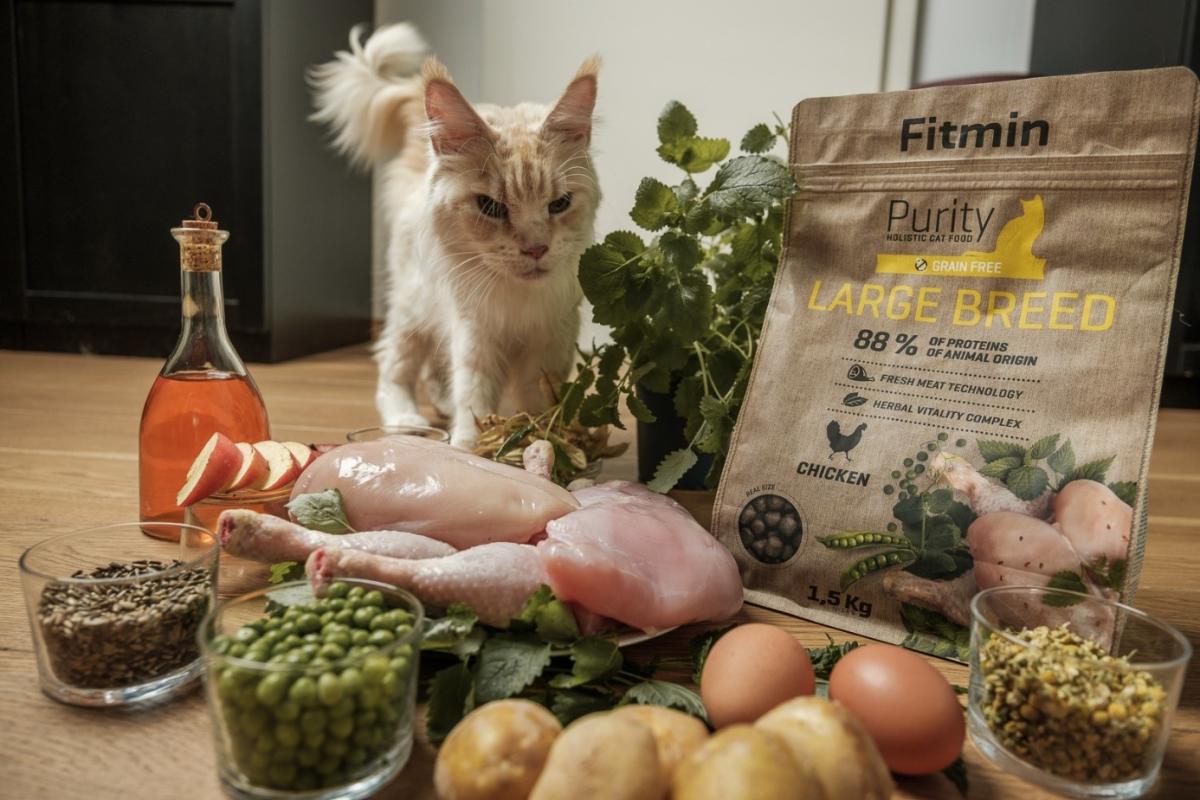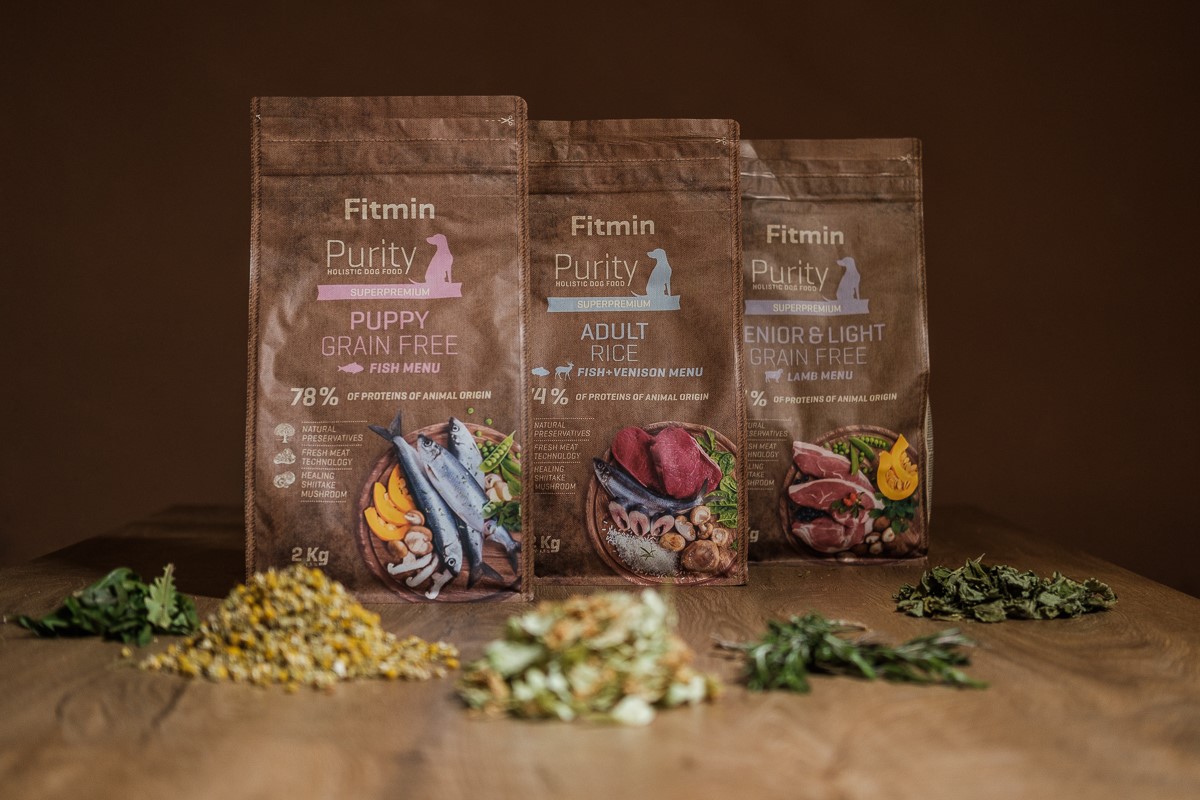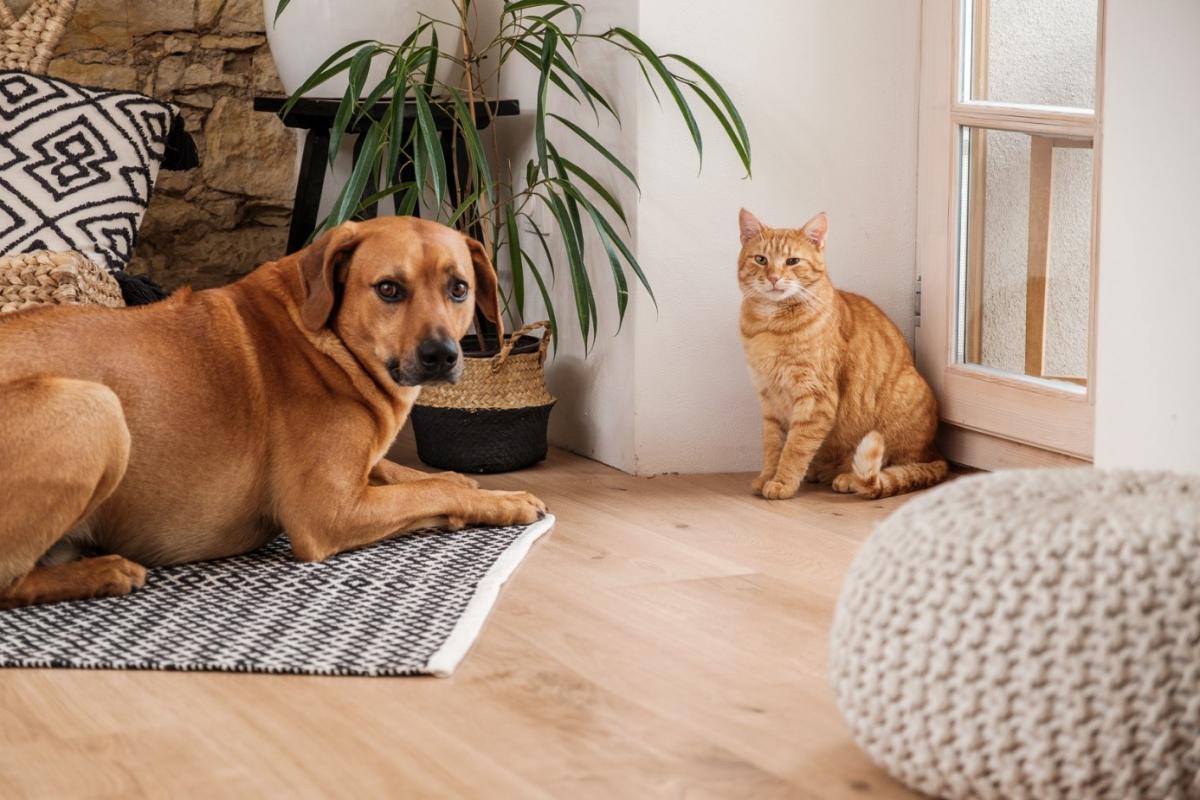What are the most common myths in pet nutrition?
Fitmin helps you digest what is true and what is not
What are the most common myths in pet nutrition?
The eating habits of our pets are surrounded by many myths. Some of them are old wives' tales; others are spread as misinformation through bad sources and with absolutely no fact checking. It is because of the abundance of information about what is good or bad for our pets that it can be difficult to know what to trust. Fitmin has selected 5 common myths that deserve clarification.

We can feed bones to dogs and cats? - Not always. It depends on what specific bones you mean. For dogs, raw bones are a very good source of nutrients and help maintain healthy teeth and gums. The bad worst are heat-treated bones, which are harmful. By baking or cooking, they change their structure and begin to break into sharp pieces, which can then be dangerous. "Bones are practically always a bad choice for cats, as their digestive tract is not adapted to it and the little pieces could cause them problems," explains Fitmin nutrition expert Denisa Kopecká. The next time you want to treat your cat to something raw, give her happiness and joy with a piece of meat or gristle.
Homemade food is better than bought food - This does not apply if the breeder considers leftovers from the table to be home food. However, there are supporters of the so-called B.A.R.F., a method of feeding dogs and cats, i.e. feeding a mixture of fresh meat, vegetables, fruit, herbs and other ingredients. However, the pitfalls of this approach can be the incorrect preparation of the menu, which may not provide the animal with all the necessary nutrients and in the right proportions. Nowadays, however, there is no need to be afraid that complete food, kibbles or canned food will provide our pets with only limited nutrition. "On the contrary, high-quality kibbles are very complex in their composition, contain a variety of raw materials and, thanks to the professional composition of the ratios of various ingredients, guarantee the highest possible benefits and use," points out Kopecká. Modern feeds, such as granules from the Fitmin Purity series, stand out with a rich proportion of fresh meat of various types, vegetables, fruits and superfoods, a selected mixture of herbs, all in popular “grain free" variants or recipes based on rice.

Cow's milk is harmful -
In general, milk and milk products are not recommended for cats or dogs, especially due to lactose intolerance. "Cow's milk can cause digestive problems in animals. This is because of the lactose content, which is difficult for them to digest. Lactose intolerance is most often manifested by vomiting, diarrhoea or flatulence," explains the expert. In addition, cow's milk is not particularly beneficial for dogs, as the rich proteins and calcium in milk can be obtained much more safely from high-quality pellets or bones and other raw materials. "In order to diversify the menu, you can offer your pets, for example, milk or yogurt that is intended for dogs and cats, and exceptionally even fermented milk products that have a lower lactose content," adds Kopecká.

Not only meat is a treat
You can give your pet some of the commonly available types of fruit here and there without any regrets. Nevertheless, among the seemingly harmless fruits, we also find a few species that we have to watch out for or avoid completely. "From fruit, we can occasionally give our pet’s raspberries, apples, blueberries or watermelon without fear. However, be more careful with bananas, which can cause constipation in larger quantities, or citrus fruits, which over-acidify the stomach. We completely avoid limes, avocados, oranges, tomatoes or grapes, even in the form of raisins, which have toxiceffects on dogs and cats," warns Denisa Kopecká. Give fruits and vegetables to your pet in reasonable quantities. .

Are dogs carnivores? What about cats?:
This is one of the most persistent myths, but we classify dogs as omnivores. This means that they get the necessary nutrients and energy not only from meat, but also from various cereals, vegetables and fruits. Except for protein and the amino acids contained in them, which are the most important for the development and growth of the dog, they also need vitamins, fibre, minerals, and healthy fats such as omega-3 and 6 fatty acids, none of which can be found exclusively in meat. A popular food for dogs is the Fitmin For Life series, which offers a great meat ratio and is available in hypoallergenic variants. You are probably wondering if cats are also omnivores. The opposite is true, cats are undoubtedly carnivores. Unlike dogs who can feed themselves for the most part on cereals, fruits and vegetables, cats need meat to live. "It is very important to monitor the amount of animal protein in cat food. Owners should therefore focus on the highest possible content of proteins of animal origin in feed," advises Kopecká. Fitmin Purity, for example, is rich in meat and offers up to 88% protein content supplemented with high-quality sources of fibre and herbs, so that the cat gets a complex of nutrients so that it does not miss anything.

We wish you a beautiful winter with your pets.
Fitmin
The Feed of Champions

